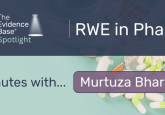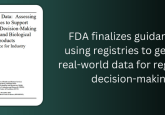HealthVerity launches taXonomy dataset for pharmaceutical and real-world evidence research

HealthVerity‘s taXonomy is a comprehensive, HIPAA-compliant closed claims dataset for pharmaceutical research, providing extensive patient data and standardized costs, to advance real-world evidence (RWE) research.
HealthVerity has unveiled taXonomy, a comprehensive closed claims dataset specifically designed for pharmaceutical research in the US. This data solution addresses the challenges of accessing HIPAA-compliant patient data, which is essential for validating the cost, effectiveness, and safety of complex treatments. HealthVerity taXonomy provides detailed insights into patient journeys, treatment outcomes, and total cost of care, making it a significant advancement in the field of RWE and health economics research.
HealthVerity taXonomy offers an extensive dataset encompassing over 245 million patient journeys from more than 225 payers, including commercial, Medicare, and Medicaid. This dataset also includes race and mortality markers and provides up to eight years of continuous coverage across all age groups, races, and geographies. These features ensure a greater volume of data on rare and orphan diseases compared to previous solutions.
The dataset is designed to be immediately ready for research purposes and feature a streamlined data model with fully synchronized, de-duplicated, and HIPAA-certified attributes. The HIPAA certification extends to any future payer and data type additions, ensuring ongoing compliance with privacy regulations and avoiding delays in accessing new patient insights.
One of taXonomy’s key strengths is its matrix approach to data providers, which maximizes breadth and stability while minimizing disruptions. This network supports seamless data integration, including new payers and fully interoperable data types such as electronic medical records and lab results, ensuring the dataset remains comprehensive and relevant.
The dataset incorporates standardized cost mapping, providing improved standardized costs mapped to procedures for any geography or payer type, including relevant market averages. This feature allows pharmaceutical companies to better understand the pricing and value of medical treatments and the total cost of care, leading to more informed research outcomes.
Andrew Kress, CEO of HealthVerity, emphasized the importance of more comprehensive and up-to-date data solutions in the rapidly evolving healthcare sector, stating,
“With the changing pharmaceutical and healthcare data landscape, researchers can no longer afford to rely on legacy closed claims datasets derived from limited data sources and lacking key attributes from commercial, Medicare and Medicaid patients.”
Want regular updates on the latest real-world evidence news straight to your inbox? Become a member on The Evidence Base® today>>>






